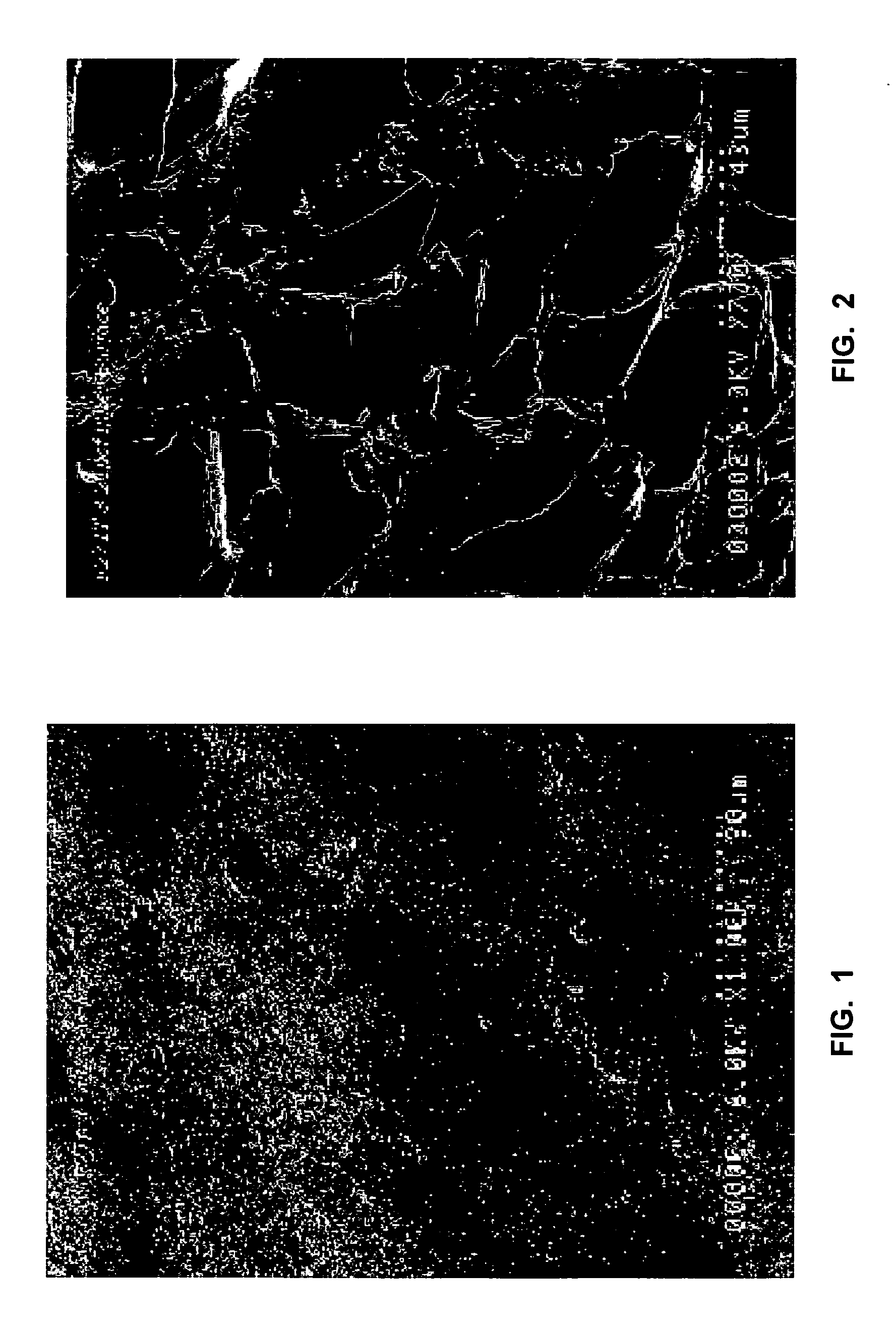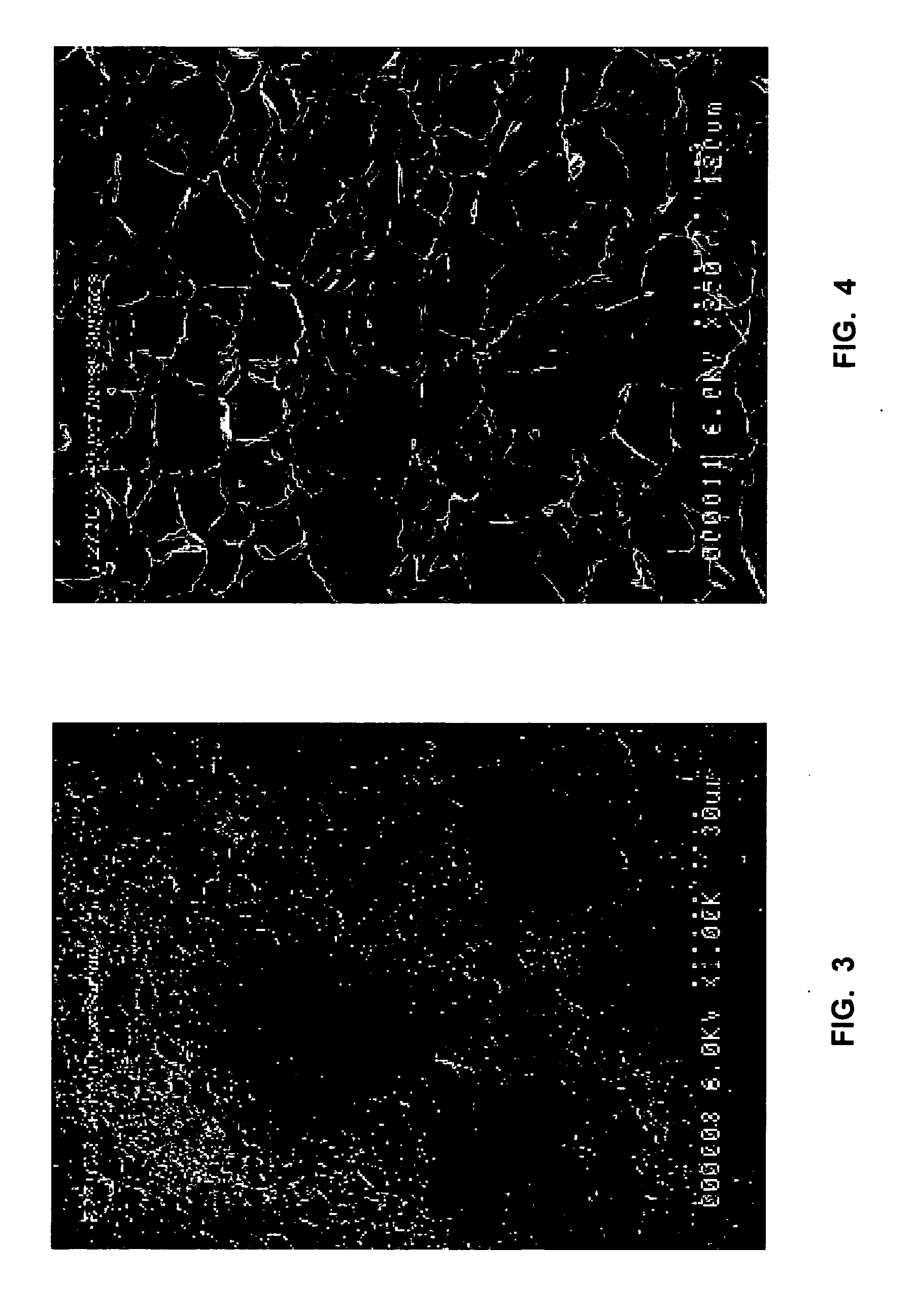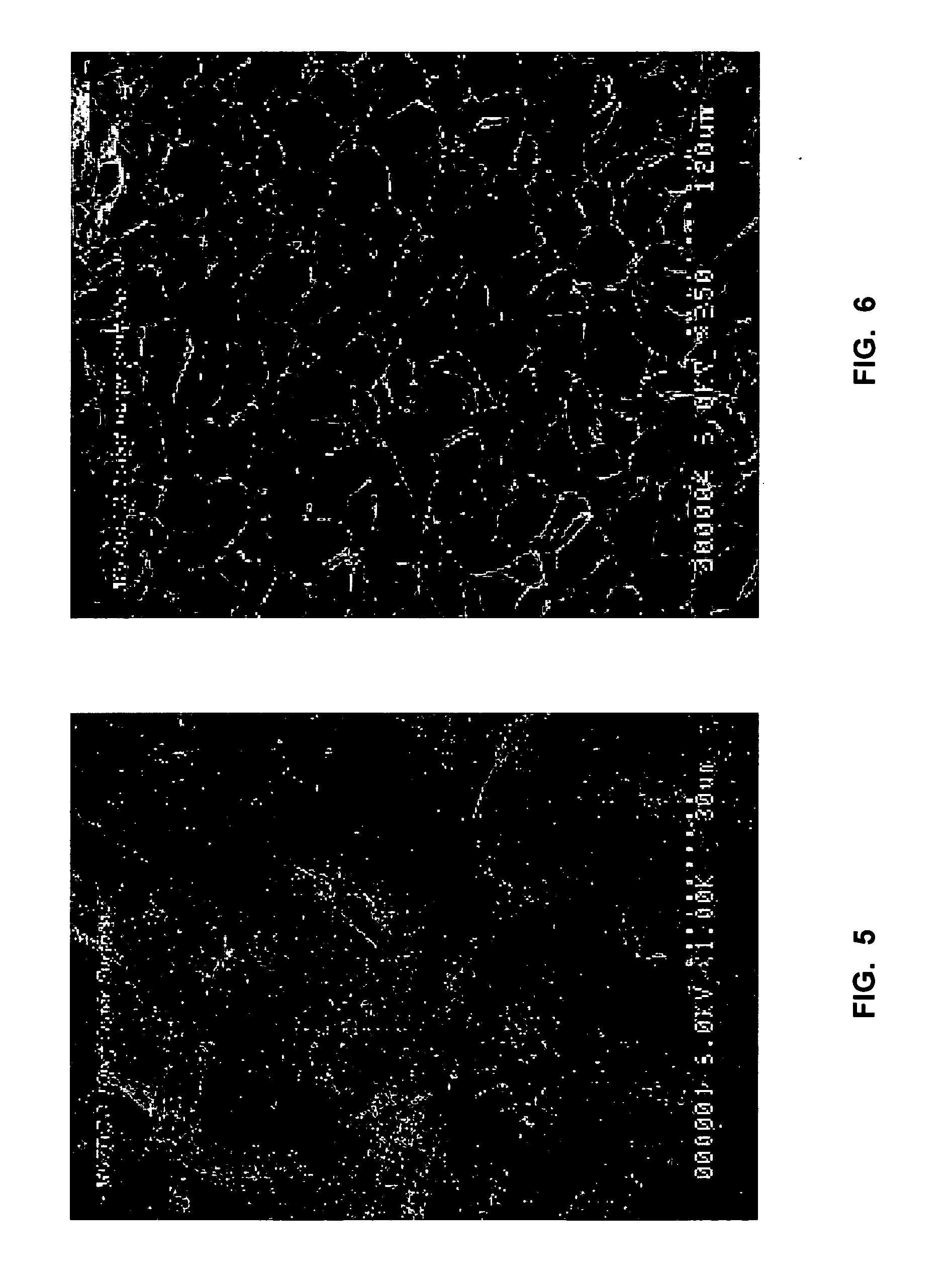Lightweight concrete compositions containing antimicrobial agents
a technology of light weight concrete and antimicrobial agents, which is applied in the direction of ceramicware, sustainable waste treatment, solid waste management, etc., can solve the problems of limited ability to utilize lightweight concrete articles, less than desirable physical properties, and low strength and/or structural integrity of lightweight concrete compositions, so as to reduce health care costs and reduce the effect of days spen
- Summary
- Abstract
- Description
- Claims
- Application Information
AI Technical Summary
Benefits of technology
Problems solved by technology
Method used
Image
Examples
example 1
[0190] Polystyrene in unexpanded bead form (M97BC—0.65 mm, F271T—0.4mm, and F271M—0.33 mm) was pre-expanded into EPS foam (prepuff) particles of varying densities as shown in the table below.
Prepuff ParticleBulkBeadBeadDensity,StandardTypeMean Size, μmlb / ft3Mean Size, μmdeviation, μmF271M3302.32902144F271M3303.1082480F271M3304.19725103F271T4002.401027176F271T4003.691054137F271T4004.57851141M97BC6502.541705704M97BC6503.291474587M97BC6505.271487584
[0191] The data show that the prepuff particle size varies inversely with the expanded density of the material.
example 2
[0192] Polystyrene in unexpanded bead form (0.65 mm, 0.4 mm, and 0.33 mm) was pre-expanded into prepuff particles with a bulk density of 2 lb / ft3 as shown in the table below. The prepuff particles were formulated into a LWC composition, in a 3.5 cubic foot drum mixer, that included 46.5 wt. % (25.3 vol. %) Portland cement, 16.3 wt. % (26.3 vol. %) water, and 1.2 wt. % (26.4 vol. %) prepuff particles. The resulting LWC compositions had a concrete density of 90 lb / ft2. The average compressive strength (determined according to ASTM C39, seven day break test) is shown in the table below.
Prepuff ParticleConcreteBeadBulk Density,CompressiveMean Size, μmlb / ft3Density, lb / ft3Strength, psi6502.009014054002.009018123302.00901521
[0193] The data show that as the mean unexpanded bead size decreases, at a constant prepuff particle density, that surprisingly higher compressive strength does not necessarily result from ever decreasing unexpanded bead size as suggested in the prior art. More parti...
example 3
[0194] Since the prepuff particle density also impacts the overall concrete density, changing the EPS density requires a change in the EPS loading level to maintain a constant concrete density. This relationship holds only as long as the total amount of prepuff particles is not so large as to compromise the strength of the surrounding concrete matrix. The relationship between the prepuff particle density and loading level provides additional opportunities to optimize concrete strength while controlling the overall concrete density.
[0195] Polystyrene in unexpanded bead form (0.65 mm) was pre-expanded into prepuff particles having varying densities as shown in the table below. The prepuff particles were formulated into LWC compositions containing the components shown in the table below, in a 3.5 cubic foot drum mixer, and each having a concrete density of 90 lb / ft3.
Sample ASample BSample CPrepuff Particle Bulk1.263.295.37Density (lb / ft3)Portland Cement, wt. %46.7 (28.5)46.2 (22.1)4...
PUM
| Property | Measurement | Unit |
|---|---|---|
| Length | aaaaa | aaaaa |
| Length | aaaaa | aaaaa |
| Length | aaaaa | aaaaa |
Abstract
Description
Claims
Application Information
 Login to View More
Login to View More - R&D
- Intellectual Property
- Life Sciences
- Materials
- Tech Scout
- Unparalleled Data Quality
- Higher Quality Content
- 60% Fewer Hallucinations
Browse by: Latest US Patents, China's latest patents, Technical Efficacy Thesaurus, Application Domain, Technology Topic, Popular Technical Reports.
© 2025 PatSnap. All rights reserved.Legal|Privacy policy|Modern Slavery Act Transparency Statement|Sitemap|About US| Contact US: help@patsnap.com



